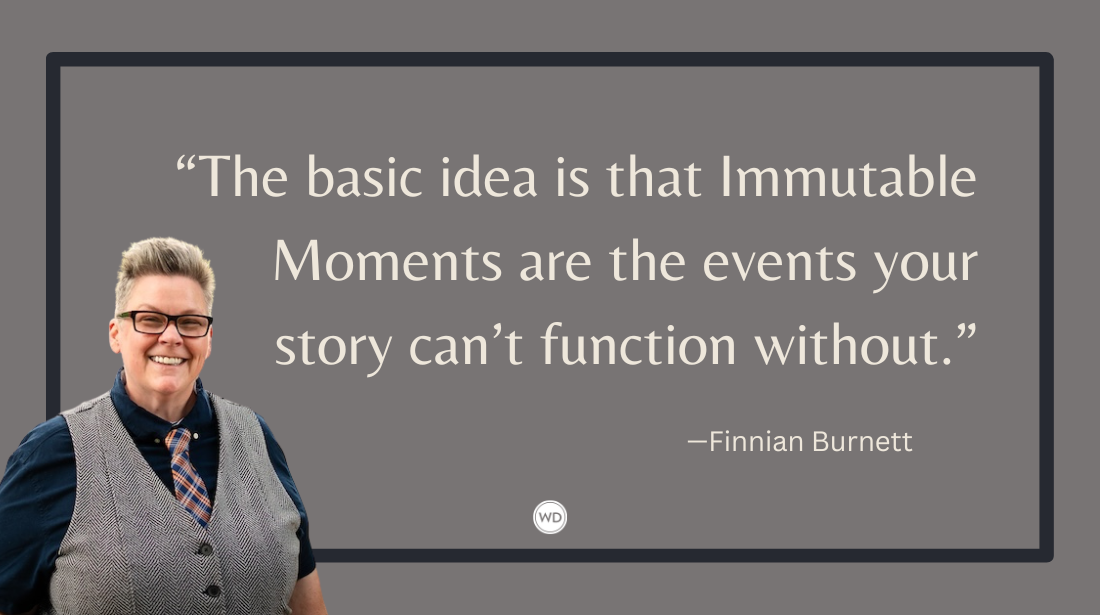I AM IN THE MIDDLE OF A SENTENCE: The Joys (and Perils) of Writing With the Family
Even though her name is on the cover, bestselling author Amulya Malladi says her whole family was integral in plotting the book. Here, she discusses the joys (and perils) of writing with the family.
I think my children will always remember interrupting me when I’m writing to hear me say not too politely and in a loud voice, “What? I’m in the middle of a sentence.”
As my husband Søren says, I can be a bit of a B word when I’m in the middle of the grind. My older son, Tobias, who is 21 and a public policy major corrects him to say, “Irritable is the politically correct term.”
Writing is a solitary gig. And I’m known to lose track of time and disappear for hours on end into a book in my office. I am also known to write in cafés, where according to my children I pretend it’s the 1930s and I’m a writer in Paris, drinking wine while I create stories. After all, Hemingway did say, write drunk, edit sober.
But while the writing process is solitary, the plotting process does not have to be. I have always discussed my books with my husband who ends up having to listen to everything I write as soon as I write it. At the end of the book, he doesn’t always know how things turned out because he listens to everything, the stuff that stays, the stuff that gets tossed out, and the stuff that would never actually see the light of day. It’s a habit for us as a couple to talk about the characters in my books as if they are real people we know. With my latest book, A Death in Denmark, my children also became a big part of the plotting, writing, and editing.
Even before I started to write the book, I plotted the book with my son Tobias as a way to distract him when he was getting his first tattoo, a quote by Roosevelt: “The Only Thing We Have to Fear Is Fear Itself.” I had warned him, since I have several tattoos, that getting inked hurts, but he didn’t realize how much it hurts until he was under the needle.
“The story helped me manage my pain; but I think I’m the reason this book is so good. You got my advice before you started writing and that made all the difference,” Tobias likes to show off.
My son, Isaiah, who is 18 and a philosophy major, disagrees; he believes the book is good because he read it twice and gave me feedback that elevated it.
The protagonist in A Death in Denmark, Gabriel Præst, an ex-cop turned PI, is a different kind of Nordic investigator. He doesn’t have a substance abuse problem, he’s not recovering from childhood abuse, and he has a healthy relationship with his friends and family. All in all, Gabriel is a well-balanced, very stylish man, albeit single; and according to my sons, is a mix of classy irreverence and hard-boiled detective who gets his ass kicked on a regular basis.
My family thinks Gabriel is uber cool and debate who he is like. Tobias believes Gabriel is modeled after him, but Isaiah is confident that Gabriel is like me, the author. He likes good food and wine. He loves Copenhagen and is very much part of the city; as I was when I lived there; and as I am now when I live in Downtown Los Angeles.
When I first started to think about Gabriel Præst, it was just my husband and I putting him together. I decided he was bald, and long before I shaved my head, because I wanted him to wear hats, very Philip Marlow-style without it being odd in a modern world. My husband was convinced he was a serial renovator who would never finish his townhouse in the center of Copenhagen. We both decided that he didn’t have a car and bicycled everywhere—Gabriel riding his bike in a suit is quintessentially Copenhagen. And we both were certain Gabriel was a guitar player who played the blues and jazz at Mojo, my husband’s favorite blues bar and other jazz clubs in Copenhagen.
“Throughout the book I could hear jazz playing in the background,” Tobias told me when he read the book. “Your kind of jazz. Thelonious Monk and Ravi Coltrane.”
It was my sons who didn’t want him to be too much of an intellectual even though he quotes Kierkegaard and Sartre (Isaiah’s two favorite philosophers)—they wanted him to be a regular guy who has friends across Danish society. He hangs out with ex-bikers as well as bankers and fits in both worlds.
As I wrote him, Gabriel became someone who had an appreciation for the finer things in life without being a snob and he enjoyed a specific kind of life in Copenhagen. The city, which is very much part of me, became part of my protagonist.
The city is a character in itself in A Death in Denmark and I even wrote part of the book in cafés and restaurants in Copenhagen.
When it came to giving critical feedback, all three men in my life were direct and open. Isaiah thought Gabriel’s love interest was boring and continues to say my book would be better if I’d made changes to her, which I didn’t. Tobias thought that the racism was on point but sometimes a bit too in your face and I did make changes to tone it down. My husband had a huge problem with Gabriel’s townhouse and nagged me until I changed the floorplan.
As I work on the next Gabriel Præst book, I find that I discuss this book with my children as I never have before. I tend to plot with them and like to hear what they think of Gabriel doing A, B, or C. They’re always honest and it’s a pleasure to hear their diverse opinions.
As I await publication and to hear feedback from readers, what I am most proud of is that my whole family was involved in the writing of A Death in Denmark and even though it’s my name on the book cover, they feel as invested in Gabriel and his adventures as I am.
Amulya Malladi is the bestselling author of eight novels, including The Copenhagen Affair, A House for Happy Mothers, and The Mango Season. Her books have been translated into several languages, including Dutch, French, German, Spanish, Danish, Romanian, Serbian, and Tamil. She won a screenwriting award for her work on "Ø" ("Island"), a Danish series that aired on Amazon Prime Global and Studio Canal+. Currently living in California, she is a Danish citizen who was born and raised in India.








